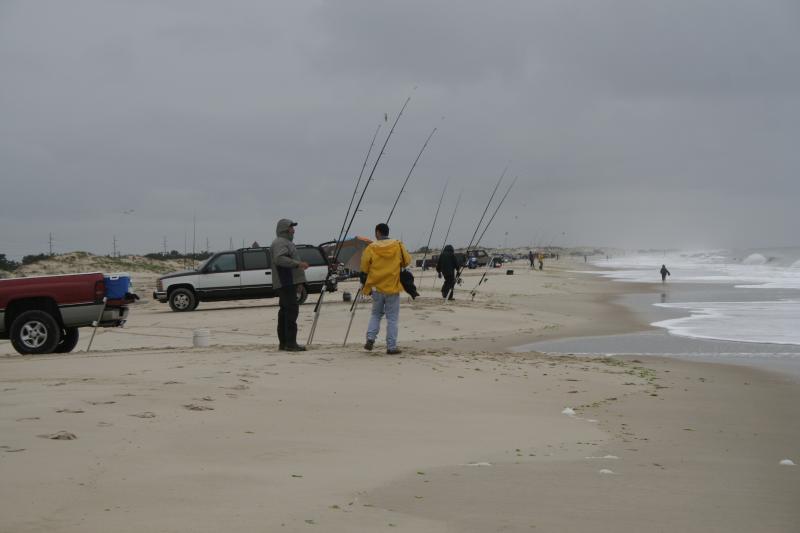Surf-fishing tags are hard to come by
As I am sure most of you know, the 17,000 surf-fishing permits that went on sale at 10 a.m., Feb. 1, were sold out before 2 p.m. the same day. That time frame included more than one hour when the online system crashed shortly after 10 a.m. My personal story is that I was online at 10 a.m., and by the time I finally got to the checkout, the only tags left were the restricted ones, only good for weekdays during the summer. Actually, that is OK since I never go anywhere near the beach on summer weekends or holidays.
One of the biggest problems associated with the start time of 10 a.m. on a Tuesday is that’s when most people are at work. One comment I saw was from a long-haul truck driver who was unable to even come close to having a chance at a regular permit since he was somewhere between New York and Chicago. It is the folks who work regular jobs and only have off on the weekends who need the regular permits.
Quite a few people seemed to think the majority of the permits went to nonresidents of Delaware. We won’t know that for certain until the figures are released, but in the past, approximately 75 percent of permits were sold to residents, while 25 percent went to nonresidents.
Paul Warren of Rehoboth took the time to email me with his idea for combining the surf-fishing permit with beach cleanup. He suggests mailing specially marked or colored disposal bags with each permit and asking the recipient to clean up the beach every time they use the permit. He believes this will add a sense of responsibility to the folks who use the beach. In order to get the permit, you have to agree to clean the beach, and in order to renew, you have to say you did clean up the beach.
I am not smart enough to even suggest how DNREC is going fix this problem. I am sure they are covered up in nasty emails and phone calls, but once the dust settles, the problem will still remain. I wish them a lot of luck!
More fishing mistakes
Here’s more on the topic of common mistakes I see with fishing, which was the topic of last week’s column. Something I see is using not enough or too much weight. This is particularity critical on head boats. Before dropping down the first rig, ask the mate what weight you should use. Actually, I call ahead and find out what weight they have been using and then bring along a good supply of sinkers in that size. When everyone on the boat is using the same weight, the rigs will sink at the same rate, and that will hold down the number of tangled lines.
While we are on the subject of head boats, if you have any inkling that you might get seasick, take something before you get on the boat. There is nothing that will cure seasickness except dry land, and you won’t see that for several hours.
Once onboard, pick out a fishing spot from whatever is left, place one or two rods in the holders, then find a bench or seat for the ride out. Put your coolers out of the way, and have your rods rigged and ready before the first stop.
While too little weight will cause tangles, too much weight will take all the fun out of fishing. I have seen people fishing from piers, head boats and even from my boat with way too much weight for the rod and reel they were using. Most fishing rods have the weights they were designed to carry marked on the shaft just above the reel seat. Most rods will carry a bit more weight than that number, but if it says 2 ounces, it wouldn’t carry 6. Using too much weight will cause the rod to bend so far that all sensitivity is lost. The big sinker will also pick up any and all debris on the bottom.
Wire leaders are another big mistake I see people make. You do have to use a short trace of wire when fishing for wahoo and sharks, but that’s about it. I have gone with 80-pound mono leaders for big blues and red or black drum. Mono is easier to work with, and I have landed blues to 18 pounds and red drum to 48 inches. You do have to check the leader for damage after every fish and replace it if you find even the slightest nick. Don’t ask how I know this.
Another no-no is using a pyramid sinker at Indian River Inlet. I recently told a guy not to cast one out or he would never see it again. He did, and he didn’t.






















































